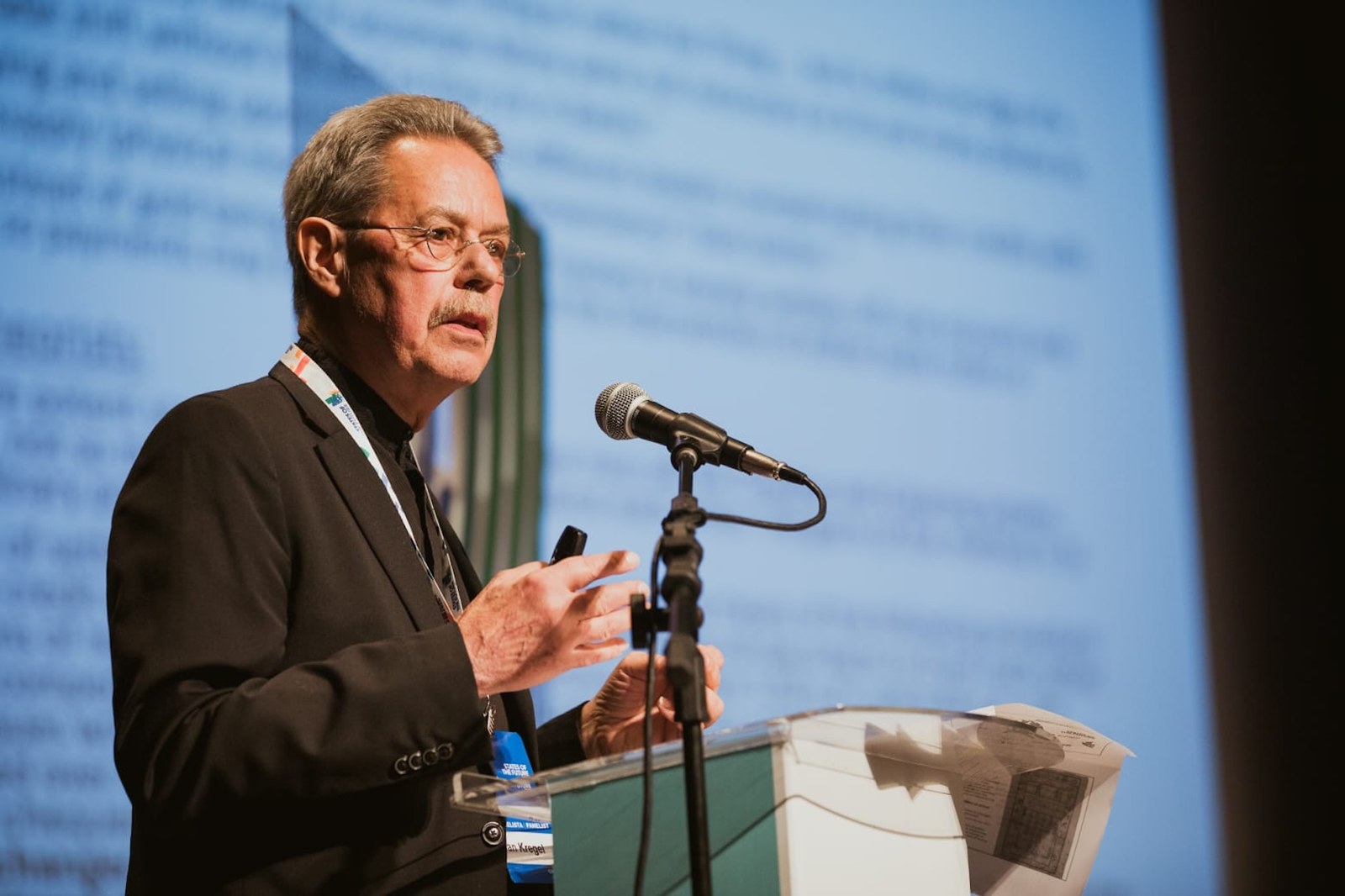Economist forecasts the end of money at G20’s “States of the Future” event
Economists propose creating a virtual currency and a global bank to finance the Sustainable Development Goals (SDGs), drawing inspiration from the founding principles of the Bretton Woods institutions.

Professor Jan Kregel of Tallinn University of Technology proposes that money is no longer relevant and that the state is no longer necessary. He presented this argument during the “International Financial Architecture” panel at the 'States of the Future' event held at the Brazilian Development Bank (Banco Nacional de Desenvolvimento Econômico e Social/BNDES) headquarters in Rio de Janeiro.
Current technologies, particularly encryption and digital settlement systems, challenge traditional financial structures and pave the way for creating a 'virtual' currency. This trend reflects a growing movement toward utilizing innovative transaction methods to bypass state control, highlighting resistance to conventional regulation.
“We are talking about states and the future. The error in this line of thinking is that the future is now. Everyone seems to ignore that the creation of cryptography allows us to eliminate the state. While we're saying we need more regulation, a new state, a portion of the world is voting with their money against the state,” argues Kregel.
The concept of a “virtual” currency is not new. Various cultures, including the Chinese and Muslims, have historically used settlement methods that continue to influence contemporary practices. Influential economists such as Adam Smith, Michał Kalecki, Ernst Schumacher, and the Bretton Woods agreements developed systems that facilitate transactions without the physical movement of money.
The Central Bank Digital Currencies (CBDCs) proposal could transform the financial system by eliminating the need for intermediary banks. Financial institutions benefiting from the current system strongly resist this change. Studies indicate that banks account for 17% of global Gross Domestic Product (GDP). “Redirecting that 17% could allow us to invest in Las Vegas, New York, California, or fund environmentally friendly ventures without increasing the deficit. Private banks will vigorously oppose the implementation of these systems,” asserts Kregel.
The enduring influence of neoliberal values and norms presents a significant barrier to such transformations. This issue was addressed in the panel “Challenges of Economic Policy in the Post-COVID Era” with Richard Kozul-Wright, former director of the Globalization and Development Strategies Division at the United Nations Conference on Trade and Development (UNCTAD). He emphasized the urgent need for a progressive agenda to address the legacies of this period, particularly in investment and infrastructure.
Estimates suggest that countries must invest the equivalent to 3% of GDP, approximately USD 3 trillion annually, to meet the United Nations Sustainable Development Goals (SDGs) and the Paris Climate Agreement. According to Kozul-Wright, “No institutions at the domestic or international levels are currently equipped to mobilize, organize, and coordinate investments on this scale with the necessary urgency, especially regarding the climate challenge.”
Wright advocated for establishing a new international alliance to address the inequalities and imbalances in the current economic system, drawing inspiration from the foundational principles of the Bretton Woods institutions. The goal is to create a fairer and more efficient financial and trade system.
The 'States of the Future' event is organized by the Ministry of Management and Innovation in Public Services (Ministério da Gestão e da Inovação em Serviços Públicos/MGI), Ministry of Foreign Affairs (Ministério das Relações Exteriores/MRE), Ministry of Development, Industry, Trade, and Services (Ministério do Desenvolvimento, Indústria, Comércio e Serviços/MDIC), the BNDES, and the United Nations Development Programme (UNDP). Maranta and the Organization of Ibero-American States for Education, Science, and Culture (OEI) are coordinating the event with support from the Open Society Foundations and República.org.
*With information provided by the Brazilian Ministry of Management and Innovation in Public Services and the Organization of Ibero-American States for Education, Science, and Culture